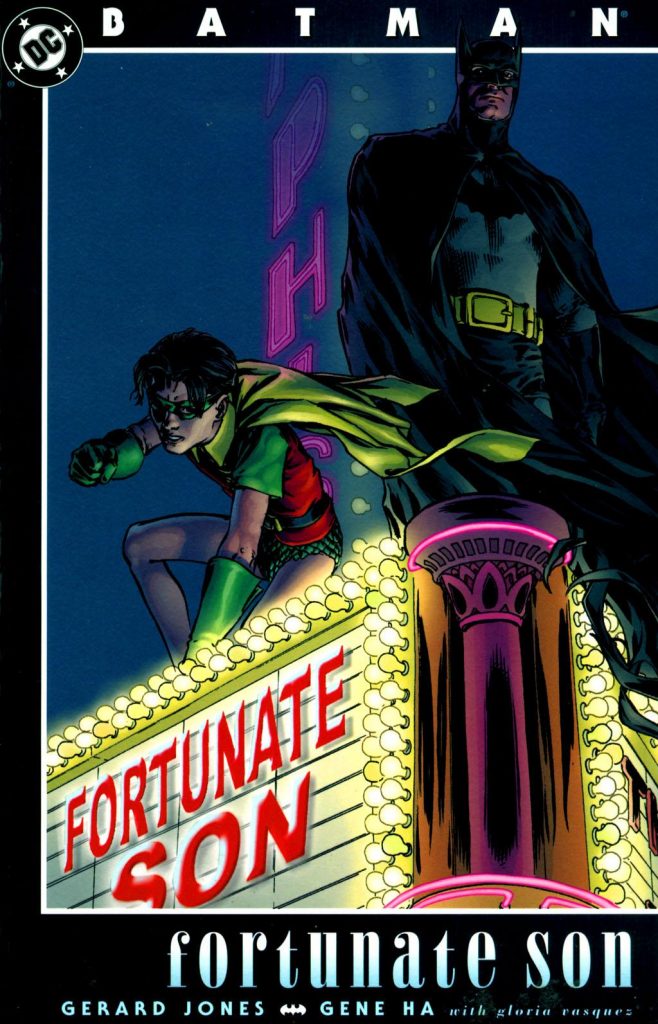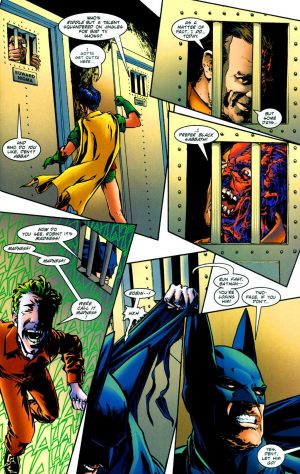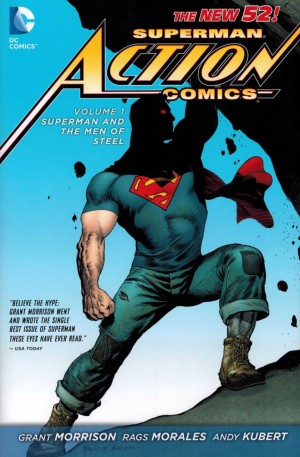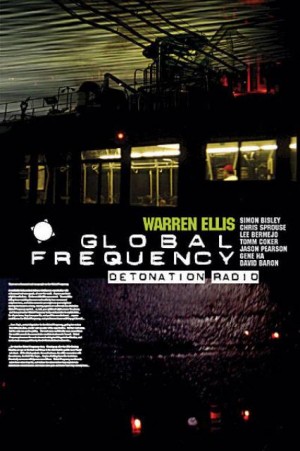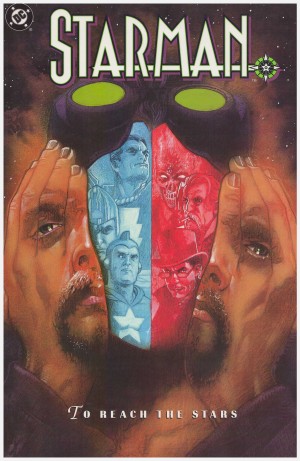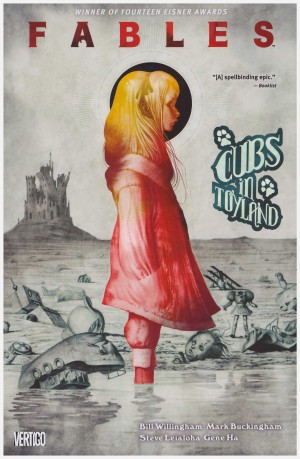Review by Karl Verhoven
Izaak Crowe is a massively talented rock star who comes to believe commercial considerations have turned him from the purity of the music he wants to play. His deep-seated insecurities are fueled by a ghostly manifestation of someone who’s intended to be Elvis Presley, but who looks completely different, no doubt due to Presley’s estate being protective about his image use. As he turns from music to crime he gathers an army of young followers equally frustrated with the inadequacies of the system.
Fortunate Son was the second time Gerard Jones involved Batman in the world of music, but unlike the moody Jazz (never collected as a graphic novel), this lacks any kind of credibility. Jones institutes a generational divide by having Robin argue for Crowe’s innocence, while fuddy-duddy Batman sometimes sounds as if he’s Adam West: “This musical infatuation has clouded your judgement more than I feared” or “Insanity reverberates in every chord of this music you love”. Jones is on far firmer footing with the simple rebellious rock lyrics from Crowe’s repertoire with which he soundtracks the story.
Gene Ha was in the early stages of his career when he drew Fortunate Son, and while the raw talent is there, he’s yet to develop his signature refinement. There are flashes of what he’d become in the layouts. He draws a nice red Cadillac, and can’t be faulted for the detail he puts into the pages, but it’s not distinguished work. Mitigating this somewhat is his not being shown to his best advantage by the colouring of Gloria Vasquez, supernaturally bright and with little sense of light and shade.
Perhaps Ha was less than enamoured with the story he was drawing, which disintegrates almost on a page by page basis. Jones hammers home the musical links with the subtlety of a flying mallet to the face. We’re expected to believe a young Bruce Wayne became infatuated with a Sid Vicious style punk, and that the Joker paces his Arkham cell singing the old ska tune Madness, while the Creedence Clearwater Revival song used for the title has no relevance other than as a soundbite. It’s precisely the type of vacuous association Jones has Crowe railing against. By the time Crowe picks up the hitchhiking ghosts of several other dead rock stars, Jones’ plot has completely collapsed. But that’s not the worst of it. The finale is set in a mansion filled with Elvis impersonators, except DC have ensured there’ll be no letters from laywers representing Presley’s estate by not even having them resemble Elvis beyond the costumes. The background to the plot is what everyone will surely predict from the opening pages, as is the finale, and the holes in it are equally visible. Furthermore every now and then Jones will throw in a line about the purity of music, such as wooly nonsense about how some songs can’t be contained by mere humans.
It would have been better for all concerned had Crowe crashed his car on page fifteen. See the same themes worked far better in White Trash.
